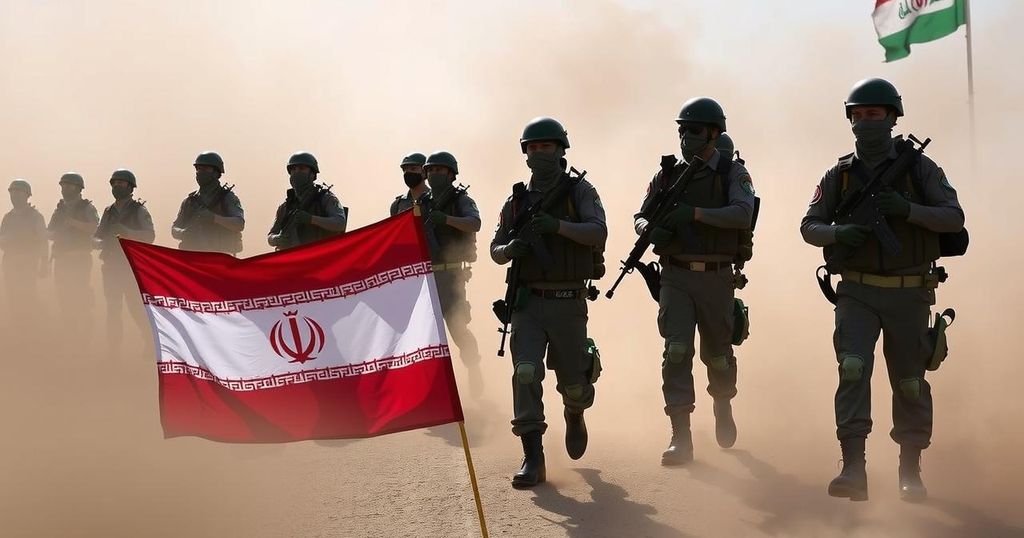Iraqi militias, particularly the Popular Mobilization Units, continue to express loyalty to Tehran as they shift focus from Israel to Syria. Key figures like Faleh Al-Fayyad reaffirm their allegiance, highlighting the influence of Iran in Iraqi politics. Meanwhile, regional political changes could impact the balance of power among Sunni and Kurdish factions in Iraq.
As Iraqi militias refocus their efforts away from Israel, they continue to express unwavering allegiance to Tehran. Recent statements from the head of the Popular Mobilization Units (PMU), Faleh Al-Fayyad, reaffirmed their loyalty to Iran and its former commander Lieutenant General Qassem Soleimani, who was a pivotal figure in the fight against ISIS and was assassinated in a U.S. drone strike in 2020. The PMU leader’s statements emerged during a commemoration ceremony in Diyala province, marking the liberation from ISIS, which overran parts of Iraq starting in 2014 and was expelled by 2017.
The Iraqi militia’s current posture indicates a strategic shift, as they have become less focused on confrontation with Israel and are now concentrating on regional dynamics involving Syria. This transition is underscored by recent meetings between Iraqi officials and new Syrian leadership. Hadi al-Amiri, the head of the Badr Organization within the PMU, has expressed confidence in facing the evolving Syrian government, while simultaneously acknowledging potential implications for Iraq’s internal politics, especially with respect to Sunni interests.
Moreover, Sunni leaders in Iraq are cautiously optimistic that changes in Syria may bolster their position within the Iraqi political landscape. Observations from the Kurdistan region also indicate a keen interest in the developments in Syria, with the Kurdistan Democratic Party (KDP) advocating for increased cooperation among Kurdish factions across the borders to potentially forge a unified approach to governance.
These shifting alliances and realignments highlight the complex interplay of Iraqi and regional geopolitics, as the PMU’s fidelity to Iran’s objectives persists alongside a cautious consideration of the evolving landscape in Syria and Iraq.
The ongoing geopolitical dynamics in Iraq are heavily influenced by the entrenchment of Iranian-backed militias, particularly the Popular Mobilization Units (PMU). Established in response to the rise of ISIS, these militias have secured substantial authority and continue to manifest their allegiance to Iran. The influence of Tehran is significant, particularly following the 2020 assassination of Qassem Soleimani, which has shaped their operational strategies. Recent escalations and changes in Syria’s leadership signal new games in regional power that may have consequences for Iraq’s Sunni and Kurdish populations, who are both observing developments with vested interests.
In conclusion, the PMU’s reaffirmation of loyalty to Iran amidst changing regional circumstances illustrates the complexity of Iraq’s political landscape. With Iranian-backed militias shifting focus from Israel to potential threats and opportunities in Syria, the implications for Iraqi governance are profound. The interactions among diverse political factions, particularly Sunni leaders and Kurdish groups, suggest an emerging strategy to navigate the evolving political terrain shaped by both Iraqi and Syrian developments.
Original Source: www.jpost.com







